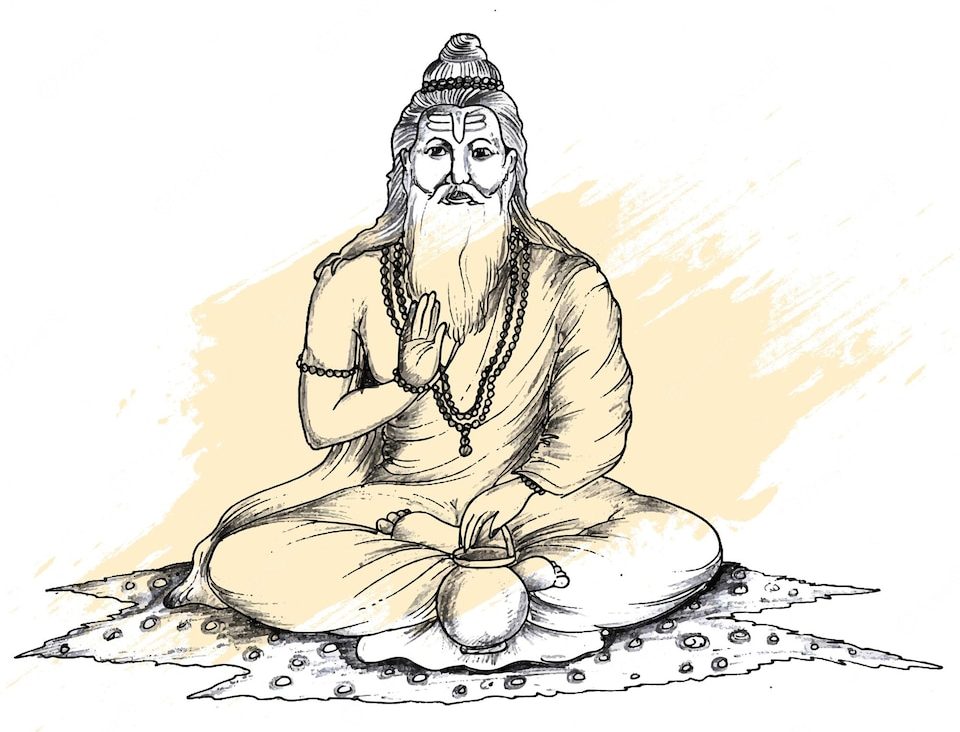
Maharishi Dhanvantari
The Divine Physician and Father of Ayurveda
Introduction:
Maharishi Dhanvantari, an incarnation of Lord Vishnu, is a revered figure in Hindu mythology and is regarded as the divine physician. Emerging from the cosmic ocean during the Samudra Manthan (churning of the ocean) with the pot of Amrita (nectar of immortality), he became synonymous with healing and rejuvenation. This article delves into Maharishi Dhanvantari’s early life and education, his career as a sage and teacher, his relationship with gods, his disciples, contributions to Hindu culture, and his enduring legacy as the father of Ayurveda.
Early Life and Education:
The details of Maharishi Dhanvantari’s early life are steeped in myth and legend. He is believed to be an eternal being, an incarnation of Lord Vishnu, sent to guide and heal humanity. As an immortal deity, his knowledge and wisdom are considered divine, making him the foremost authority on the science of healing.
Career as a Sage and Teacher:
As the divine physician, Maharishi Dhanvantari dedicated his existence to the well-being of all living beings. His profound knowledge of medicine and healing practices earned him the status of a revered sage and teacher. He imparted the principles of Ayurveda, an ancient system of medicine, to his disciples, ensuring the preservation and propagation of this holistic healing tradition.
Relationship with Gods:
Maharishi Dhanvantari’s emergence with the pot of Amrita during the Samudra Manthan cemented his divine status. The gods themselves recognized him as the primordial healer and a source of divine knowledge. His relationship with the gods solidified his role as a deity with the ability to bestow health and longevity.
Other Disciples:
While there is limited information about Maharishi Dhanvantari’s disciples in traditional texts, it is believed that he imparted his knowledge of Ayurveda to select sages and scholars, ensuring the continuity of this sacred healing tradition.
Contributions to Hindu Culture:
Maharishi Dhanvantari’s most significant contribution to Hindu culture is the establishment of Ayurveda as a comprehensive system of medicine. Ayurveda emphasizes a holistic approach to health, considering the interplay of physical, mental, and spiritual aspects. This ancient healing science has had a profound impact on the lives of millions, even to this day.
Legacy:
Maharishi Dhanvantari’s legacy as the divine physician and father of Ayurveda endures as an influential and respected system of medicine. His teachings and principles continue to shape the practices of Ayurvedic medicine, promoting wellness, balance, and rejuvenation.
Overview of His Contribution in Hinduism:
In Hinduism, Maharishi Dhanvantari is revered as a divine figure who embodies compassion and healing. His role as the divine physician underscores the belief in the benevolent aspect of the divine that alleviates suffering and restores health.
Books Written by Him:
Though there are no direct mentions of Maharishi Dhanvantari as a writer, his teachings and principles are encapsulated in ancient Ayurvedic texts, some of which include the Charaka Samhita and Sushruta Samhita.
Conclusion:
Maharishi Dhanvantari’s divine presence as the incarnation of Lord Vishnu and his role as the divine physician have left an indelible mark on Hindu culture and spirituality. His contributions to Ayurveda have made it an influential and enduring system of medicine that continues to benefit humanity. The legacy of Maharishi Dhanvantari stands as a beacon of hope, promoting holistic health and well-being, and reaffirming the ancient wisdom that seeks to harmonize the mind, body, and soul.
Editor – Kaalchakra Team
[ Note – Before Concluding anything as a Finale, Please Go through Original Scriptures of Vaidik Literature Written in Sanskrit and Also with Meaning of That time of Language. Because English is a Limited language to Explaining the Deeper Knowledge of Vaidik Kaal. ]
